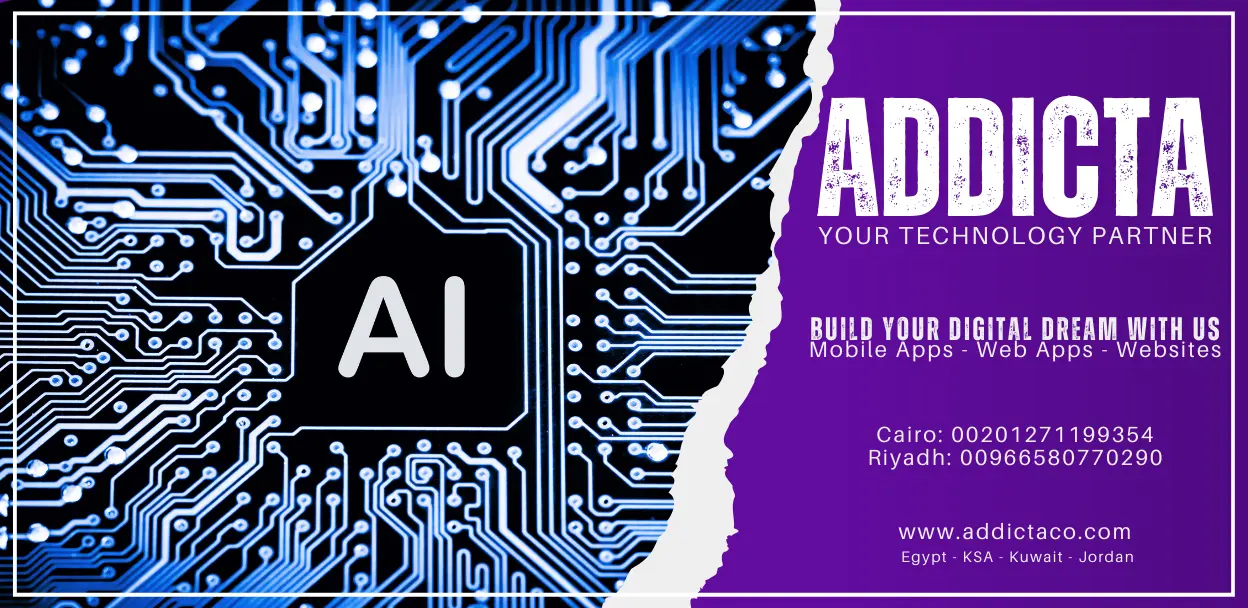Artificial Intelligence (AI) is revolutionizing the landscape of web and mobile app development. Businesses are leveraging AI-driven solutions to enhance user experience, automate processes, and improve efficiency. AI-powered applications not only streamline development but also provide personalized and intelligent interactions, making apps more engaging and effective.
In this blog, we’ll explore the impact of AI in web and mobile app development, its benefits, key AI technologies, and how businesses can integrate AI into their applications.
How AI is Transforming Web and Mobile App Development
AI is no longer just a futuristic concept; it has become an essential component of modern software development. Here are some of the key ways AI is changing the web and mobile app industry:
1. Enhanced User Experience with AI-driven Interfaces
AI plays a crucial role in creating intuitive and user-friendly interfaces. With technologies like Natural Language Processing (NLP) and Machine Learning (ML), applications can understand user preferences and behaviors.
- Chatbots and Virtual Assistants: AI-powered chatbots enhance customer support by providing instant responses, reducing wait times, and improving user satisfaction.
- Voice Recognition: Apps integrated with voice assistants like Siri, Alexa, and Google Assistant allow hands-free interaction.
- Personalized Content: AI algorithms analyze user behavior and preferences to recommend relevant content, improving engagement.
To explore more about how AI enhances software applications, check out our detailed guide on How AI Enhances Software Applications.
2. AI in App Development: Automation and Code Optimization
AI-driven tools are streamlining the development process by automating coding, testing, and debugging.
- Automated Code Generation: AI-powered platforms like GitHub Copilot assist developers by suggesting code snippets, reducing development time.
- Error Detection and Debugging: AI helps identify bugs and vulnerabilities in real time, ensuring more stable and secure applications.
- Low-Code/No-Code Development: AI-powered platforms allow businesses to build applications with minimal coding knowledge, making development accessible to a wider audience.
3. AI-Powered Data Analytics for Better Decision Making
AI helps businesses collect and analyze vast amounts of user data to make data-driven decisions.
- User Behavior Analytics: AI tracks how users interact with an app, helping developers improve UI/UX design.
- Predictive Analytics: AI predicts future user behavior, allowing businesses to optimize marketing strategies and customer engagement.
- Real-time Insights: AI-powered dashboards provide real-time data analysis, enabling businesses to make quick and informed decisions.
4. AI for Improved Security in Applications
With cyber threats on the rise, AI is essential in strengthening app security.
- Fraud Detection: AI algorithms detect suspicious activities, reducing fraud risks in financial and e-commerce applications.
- Biometric Authentication: AI enhances security through facial recognition, fingerprint scanning, and voice authentication.
- AI-driven Threat Detection: AI identifies vulnerabilities and prevents security breaches by analyzing user patterns and anomalies.
5. AI-driven Digital Marketing for Web and Mobile Apps
AI is revolutionizing digital marketing by automating campaigns, improving audience targeting, and enhancing user engagement.
- AI-Powered Chatbots for Customer Interaction: Businesses use AI chatbots to handle inquiries and support, improving customer experience.
- Predictive Customer Behavior: AI analyzes user data to predict purchasing behavior, helping marketers optimize strategies.
- Automated Ad Campaigns: AI-driven tools like Google Ads and Facebook AI automate ad targeting, ensuring better ROI.
Learn more about How to Use AI in Digital Marketing and leverage AI for your marketing success.
Key AI Technologies Shaping App Development
To fully utilize AI in web and mobile apps, developers integrate various AI technologies, including:
1. Machine Learning (ML)
ML algorithms help apps learn from data, improving performance over time without explicit programming.
2. Natural Language Processing (NLP)
NLP enables applications to understand and process human language, making chatbots and voice assistants more efficient.
3. Computer Vision
This AI technology allows apps to recognize images, objects, and facial features, used in security, social media, and healthcare applications.
4. AI-Powered Recommendation Systems
E-commerce and streaming platforms use AI-driven recommendation systems to suggest products, movies, and music based on user preferences.
5. Robotic Process Automation (RPA)
RPA automates repetitive tasks like data entry, improving efficiency in business applications.
How to Integrate AI into Web and Mobile Apps
Integrating AI into an app requires careful planning and execution. Here’s how businesses can do it effectively:
1. Identify AI Use Cases
Determine where AI can add the most value—whether it’s enhancing user experience, improving security, or automating tasks.
2. Choose the Right AI Tools and Frameworks
Some popular AI frameworks include:
- TensorFlow – Ideal for machine learning applications
- IBM Watson – Best for AI-powered chatbots
- Microsoft Azure AI – Provides various AI solutions for cloud applications
3. Implement AI-driven Features Gradually
Start with small AI-driven features like chatbots or recommendation engines before expanding to more complex functionalities.
4. Monitor and Optimize AI Performance
AI models require continuous monitoring and updates to ensure accuracy and efficiency.
The Future of AI in App Development
As AI continues to evolve, its role in app development will expand. Some emerging trends include:
- AI-driven UI/UX design – AI will help create dynamic and personalized app interfaces.
- Hyper-personalization – AI will tailor content and features based on real-time user behavior.
- Edge AI – AI-powered applications will process data locally on devices, reducing reliance on cloud computing.
Conclusion
AI is revolutionizing web and mobile app development by enhancing user experience, automating tasks, improving security, and optimizing marketing efforts. Businesses that integrate AI into their applications gain a competitive edge, offering smarter and more efficient solutions.
If you’re looking to integrate AI into your app or need expert guidance, Contact Us today to explore how AI can transform your business.

